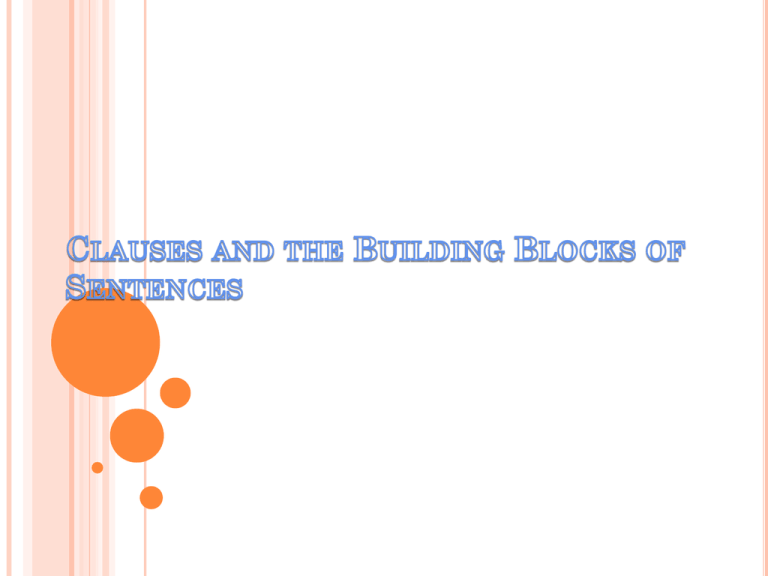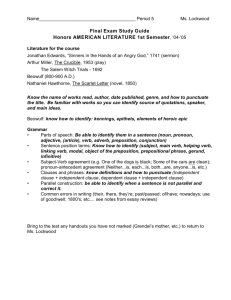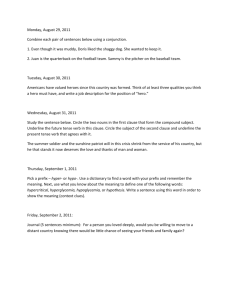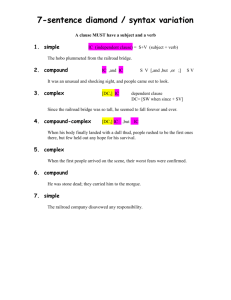Document 15885965
advertisement

CLAUSES A clause is a group of words, and there are two types of clauses. Independent Clauses Dependent Clauses Independent Clause Has both a subject and a verb. Makes up a complete thought, with no missing elements. Is the same as a sentence. Example: People like this school. Dependent Clause Does not make a complete thought. When on its own, is the same as a fragment. If joined to an independent clause, can made a complete sentence. Is missing either a subject or a verb, or it has some other element that makes it incomplete. Example: Because it has many beautiful trees. Running on empty. People like this school because it has many beautiful trees. THE PIECES OF AN INDEPENDENT CLAUSE He loves computer games. Verb Subject Verb Subject Dave Subject and Tina are peaceful people. THE PIECES OF A DEPENDENT CLAUSE (BOTH OF THESE ARE ALONE, SO THEY ARE FRAGMENTS) Waiting for my mom. Kind of a verb, kind of not. No Subject! Has two subjects but no verb. The television and radio. ANOTHER TYPE OF DEPENDENT CLAUSE/FRAGMENT MIGHT HAVE A SUBJECT AND VERB BUT ALSO CONTAINS A WORD THAT MAKES IT INCOMPLETE. Because you already know me. If Miguel flies in from Cancun. As though the fall had hurt. THERE ARE SIX TYPES OF FRAGMENTS (SEE MORE ABOUT THESE IN WRITING WITH CONFIDENCE.) Missing or incomplete verbs Although /because Fragments Who,/Which/ That Fragments Missing subject Infinitives and –ing words FRAGMENTS ARE NOT ACCEPTABLE IN COLLEGE OR PROFESSIONAL WRITING. THEY MUST BE FIXED. 1. 2. Identify the fragment (in other words, the dependent clause on its own, masquerading as a sentence). Add the missing subject or verb or independent clause, or subtract a word that makes the clause dependent. IDENTIFY A FRAGMENT BY ITS MISSING SUBJECT OR VERB, OR ITS GENERAL INCOMPLETENESS. THEN FIX IT IN ONE OF TWO WAYS. Cut out the word that creates incompleteness. • Because you already know me. • You already know me. Add an independent • Because you already clause, which will know me, you can be make the dependent familiar with my clause a legitimate family. part of a larger sentence.







